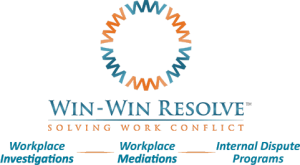 The United States Supreme Court’s March 4, 2014 decision in Lawson v. FMR LLC not only expanded the whistle-blower coverage under the Sarbanes-Oxley Act of 2012 (“SOX”), it also stoked fears that a new wave of SOX whistle-blower litigation testing the scope and meaning of SOX is imminent. In Lawson, the Supreme Court held by a 6-3 margin that the SOX anti-retaliation provision applies not only to employees of publicly traded companies, but also to employees of non-public companies that provide work for public companies. Until the Lawson decision, employers generally operated under the belief that SOX applied only to employees of publicly traded companies.
The United States Supreme Court’s March 4, 2014 decision in Lawson v. FMR LLC not only expanded the whistle-blower coverage under the Sarbanes-Oxley Act of 2012 (“SOX”), it also stoked fears that a new wave of SOX whistle-blower litigation testing the scope and meaning of SOX is imminent. In Lawson, the Supreme Court held by a 6-3 margin that the SOX anti-retaliation provision applies not only to employees of publicly traded companies, but also to employees of non-public companies that provide work for public companies. Until the Lawson decision, employers generally operated under the belief that SOX applied only to employees of publicly traded companies.
In addition to the expanded SOX whistle-blower coverage following the Lawson decision, U.S. employers also face ever expanding whistleblower related exposure under federal and state laws. Those federal statutes include the Dodd-Frank Act, OSHA, the Fair Labor Standards Act, and the Family and Medical Leave Act. There are also numerous state and local civil rights, discrimination and/or public safety whistleblower laws. In this evolving area of law, federal and state governments are also making it easier and easier for employees to make whistleblower claims via national and state hotlines. They are also wooing employees with promises of large rewards to employees who report alleged fraud or other wrongdoing.
The good news for employers is that research shows that despite these new developments, employees prefer to resolve their concerns internally. Research by the nonprofit Ethics Resource Center found that 84% of whistleblowers that reported a compliance concern outside their company first reported the concern internally. It was only after the employer failed to address the concern satisfactorily that the employee reported the concern to a third-party outside the company. Click here to read research.
Procedural Fairness Key to Whether Employees Becomes Whistleblower
A 2013 study by the Ethics Resource Center examined the hotline reporting experience of 612 employees at five companies. Perhaps the most significant finding of the study was that “the primary factor influencing the degree of acceptance was whether or not the reporters felt the procedure used to handle their report was fair.” In looking at this finding more closely, the researchers found that “reporters indicated that the quality of decision-making was slightly more important to acceptance than the quality of the personal treatment they received, but that positive perceptions of both of those elements contributed to acceptance.”
Notably, the study also evaluated how reporting employees react when their report is not substantiated or when the reporting employees do not know the outcome of the investigation. In both instances, the reporting employees’ perception that the review process was procedurally fair was a “critical influence in shaping acceptance and outweighs outcome favorability.” That finding is significant in the context of internal workplace investigations where confidentiality concerns often preclude an organization from sharing any disciplinary decisions that may have resulted from the concerns or complaints made by the reporting employee.
In the study, the reporting employees were asked questions intended to test the reporter’s perception of the fairness of the procedures used in the process, the fairness of the personal treatment of the reporter and the reporter’s overall view of the fairness of the report handling procedure. In order to evaluate the impact of the investigation procedures used, the researches used a regression analysis to determine the influence a favorable outcome had on the reporter’s perception of procedural fairness. Not surprisingly, reporters who viewed the outcome of the investigation as favorable were more likely to accept the outcome. What was surprising though was that whether or not the investigator substantiated a reporter’s complaint had little impact on reporter perceptions of the process. Click to read full report.
Four Keys to Procedural Fairness
These findings are consistent with more general social psychology research into the concept of procedural fairness. According to research by Tom R. Tyler, professor of law and psychology at Yale Law School, there are four key aspects to whether a person will accept a decision making process as procedurally fair:
- Voice – People want to have the chance to tell their side of a story and in their own words to the decision maker;
- Neutrality – People want to feel that the decision maker is making the decision based on facts and rules and not the decision maker’s own personal opinions. They also want to feel that the rules are applied consistently across people and cases;
- Respect – People want to feel that their concerns are taken seriously by the decision maker and that they treated with respect when they raise their concerns;
- Trust – People want to feel like the decision maker is listening to them and consider their views. They want to feel like the decision maker is trying to do what is right for everyone involved and that the decision maker is acting in the interests of the parties and not in the decision maker’s self-interest.
Tips for Employers
In today’s world of social media, where a disgruntled employee can with a few key stroke share his or her complaints with the world, prudent employers are working hard to give their employees a clear way to report workplace concerns like fraud, harassment, discrimination and retaliation internally. They are implementing investigation protocols that ensure allegations of workplace misconduct are investigated promptly, thoroughly and impartially. They understand that a strong internal investigation protocol is a critical step in encouraging employees to keep concerns internal rather than allowing employees to feel their only alternative is to take to social media or to contact one of the government’s fraud hotlines or an adversarial attorney.
In light of the above research surrounding procedural fairness, prudent employers are also providing their risk managers, management teams and HR professionals with training on how to ensure and effectively present procedural fairness to reporting employees. As we all know, perception is reality and increasing the perception of procedural fairness further increases the likelihood that a reporting employee will accept the outcome of an internal workplace investigation and refrain from posting on social media or contacting a third-party like the government or adversarial counsel.
_________________________________________________________
 Win-Win Resolve™ is a customizable Internal Dispute Resolution (“IDR”) program that helps companies save time and money by credibly and cost-effectively assessing employee hotline complaints by categorizing them into low, medium or high-risk categories and facilitating the rapid implementation of a risk-based and procedurally fair dispute resolution program.
Win-Win Resolve™ is a customizable Internal Dispute Resolution (“IDR”) program that helps companies save time and money by credibly and cost-effectively assessing employee hotline complaints by categorizing them into low, medium or high-risk categories and facilitating the rapid implementation of a risk-based and procedurally fair dispute resolution program.
Large corporations and organizations have long known the benefits of IDR programs. Now, with the turn-key Win-Win Resolve™ program, even smaller and mid-sized employers can more easily see benefits similar to those experienced by the General Electric Company, which in a three-year period saw employment litigation costs fall from $6 million to under $1.2 million per year and perhaps as importantly achieved this result without incurring the onslaught of frivolous claims that some had feared. The Department of Energy (“DOE”) and the U.S. Postal Service saw similar results withe the DOE saving $1.3 million by mediating workplace disputes and the U.S. Postal Service experiencing a 40 percent decline in the number of employees who filed a new EEO complaint after it implemented an internal mediation program. Click here to learn more: www.WinWinResolve.com

Pingback: Six Tips to Increase Employee Trust of Internal Investigations